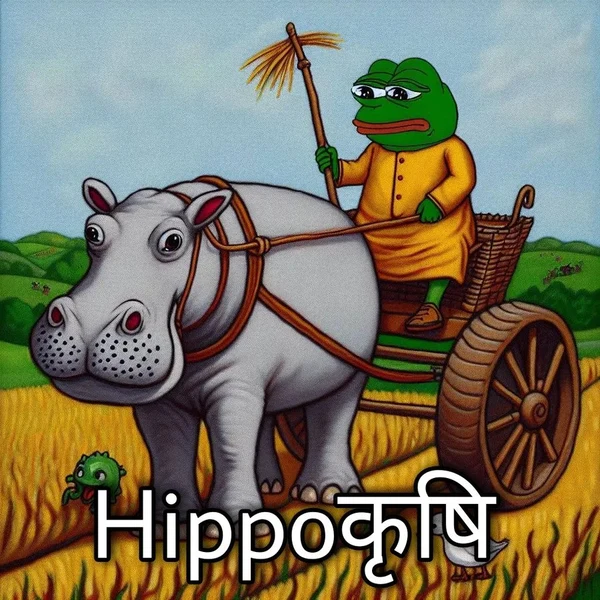More: https://old.reddit.com/r/TrueAnon/comments/zcehta/how_british_colonialism_killed_100_million/
Recent years have seen a resurgence in nostalgia for the British empire. High-profile books such as Niall Ferguson’s Empire: How Britain Made the Modern World, and Bruce Gilley’s The Last Imperialist, have claimed that British colonialism brought prosperity and development to India and other colonies. Two years ago, a YouGov poll found that 32 percent of people in Britain are actively proud of the nation’s colonial history.
This rosy picture of colonialism conflicts dramatically with the historical record. According to research by the economic historian Robert C Allen, extreme poverty in India increased under British rule, from 23 percent in 1810 to more than 50 percent in the mid-20th century. Real wages declined during the British colonial period, reaching a nadir in the 19th century, while famines became more frequent and more deadly. Far from benefitting the Indian people, colonialism was a human tragedy with few parallels in recorded history.
Experts agree that the period from 1880 to 1920 -- the height of Britain's imperial power -- was particularly devastating for India. Comprehensive population censuses carried out by the colonial regime beginning in the 1880s reveal that the death rate increased considerably during this period, from 37.2 deaths per 1,000 people in the 1880s to 44.2 in the 1910s. Life expectancy declined from 26.7 years to 21.9 years.
In a recent paper in the journal World Development, we used census data to estimate the number of people killed by British imperial policies during these four brutal decades. Robust data on mortality rates in India only exists from the 1880s. If we use this as the baseline for "normal" mortality, we find that some 50 million excess deaths occurred under the aegis of British colonialism during the period from 1891 to 1920.
Fifty million deaths is a staggering figure, and yet this is a conservative estimate. Data on real wages indicates that by 1880, living standards in colonial India had already declined dramatically from their previous levels. Allen and other scholars argue that prior to colonialism, Indian living standards may have been "on a par with the developing parts of Western Europe." We do not know for sure what India's pre-colonial mortality rate was, but if we assume it was similar to that of England in the 16th and 17th centuries (27.18 deaths per 1,000 people), we find that 165 million excess deaths occurred in India during the period from 1881 to 1920.
While the precise number of deaths is sensitive to the assumptions we make about baseline mortality, it is clear that somewhere in the vicinity of 100 million people died prematurely at the height of British colonialism. This is among the largest policy-induced mortality crises in human history. It is larger than the combined number of deaths that occurred during all famines in the Soviet Union, Maoist China, North Korea, Pol Pot's Cambodia, and Mengistu's Ethiopia.
How did British rule cause this tremendous loss of life? There were several mechanisms. For one, Britain effectively destroyed India's manufacturing sector. Prior to colonisation, India was one of the largest industrial producers in the world, exporting high-quality textiles to all corners of the globe. The tawdry cloth produced in England simply could not compete. This began to change, however, when the British East India Company assumed control of Bengal in 1757.
According to the historian Madhusree Mukerjee, the colonial regime practically eliminated Indian tariffs, allowing British goods to flood the domestic market, but created a system of exorbitant taxes and internal duties that prevented Indians from selling cloth within their own country, let alone exporting it.
This unequal trade regime crushed Indian manufacturers and effectively de-industrialised the country. As the chairman of East India and China Association boasted to the English parliament in 1840: "This company has succeeded in converting India from a manufacturing country into a country exporting raw produce." English manufacturers gained a tremendous advantage, while India was reduced to poverty and its people were made vulnerable to hunger and disease.
To make matters worse, British colonisers established a system of legal plunder, known to contemporaries as the "drain of wealth." Britain taxed the Indian population and then used the revenues to buy Indian products -- indigo, grain, cotton, and opium -- thus obtaining these goods for free. These goods were then either consumed within Britain or re-exported abroad, with the revenues pocketed by the British state and used to finance the industrial development of Britain and its settler colonies -- the United States, Canada and Australia.
This system drained India of goods worth trillions of dollars in today's money. The British were merciless in imposing the drain, forcing India to export food even when drought or floods threatened local food security. Historians have established that tens of millions of Indians died of starvation during several considerable policy-induced famines in the late 19th century, as their resources were syphoned off to Britain and its settler colonies.
Colonial administrators were fully aware of the consequences of their policies. They watched as millions starved and yet they did not change course. They continued to knowingly deprive people of resources necessary for survival. The extraordinary mortality crisis of the late Victorian period was no accident. The historian Mike Davis argues that Britain's imperial policies "were often the exact moral equivalents of bombs dropped from 18,000 feet."
Our research finds that Britain's exploitative policies were associated with approximately 100 million excess deaths during the 1881-1920 period. This is a straightforward case for reparations, with strong precedent in international law. Following World War II, Germany signed reparations agreements to compensate the victims of the Holocaust and more recently agreed to pay reparations to Namibia for colonial crimes perpetrated there in the early 1900s. In the wake of apartheid, South Africa paid reparations to people who had been terrorised by the white-minority government.
History cannot be changed, and the crimes of the British empire cannot be erased. But reparations can help address the legacy of deprivation and inequity that colonialism produced. It is a critical step towards justice and healing.
https://www.aljazeera.com/opinions/2022/12/2/how-british-colonial-policy-killed-100-million-indians











Jump in the discussion.
No email address required.
These estimates are often shady, especially when dealing with data from 150 years ago.
May have?
From the opinion writers' paper:
Ohhh, so capitalism from the 1500s ( ) made people poorer and when they got richer it wasn't capitalism. Okay, guise!
) made people poorer and when they got richer it wasn't capitalism. Okay, guise! 
I see! So everyone back then was rich, except when they weren't!
The magic of economics with Marxism!
If prices don't get you the results you want, just make up your own index. Real wages are when you calculate how much you eat per day. Surely, these records are widely available and applicable to the entire population. Their paper bitches a lot about PPP and GDP estimates, but this takes it to another level.
Yes, the Chinese have actually gotten poorer since the 1990s. They were so rich, especially during the 1950s, which is why seeing history through a Marxist lens is soooo useful. Prices are conspiring against them!
Okay. Enough sneed. I hate these academics.
Jump in the discussion.
No email address required.
People probably did grow poorer as they are wont to do when population increases in an agrarian economy with closed frontiers. Qing China was similar without colonization, there was an interesting idea I read somewhere that new world crops like potatoes served to cushion impact of famines on mortality and so from 16th century onwards Asian population began to rise to unprecedented levels. Tracks with what I know of Mughal economy too, there was barely any complexity but agriculture was being extended to areas never cultivated before including basically all of modern Bangladesh.
Its interesting about unskilled workers though, I read this one 16th century text written by a small time precious stones merchant operating in the Ganga valley and he ate a substantial amount(like greater than his seed capital substantial) on credit from a bread maker after his first venture bankrupted him. Typically you'd think a baker wouldn't have that much financial leeway but maybe cause it was the imperial capital. He used to read poems to a gathering at evening and the baker was a regular there. Data is just too limited tbh.
maybe cause it was the imperial capital. He used to read poems to a gathering at evening and the baker was a regular there. Data is just too limited tbh.
Jump in the discussion.
No email address required.
When Malthusian conditions hold, this is true (and you're correct with assuming autarky / closed borders to international trade). When the higher yielding agricultural lands hit their max, there's very little in the way of "income" to be had. The population hits a constraint, so on the margin people will have to exert more effort over less fertile lands which yields less food per laborhour (lower labor productivity --> lower income).
That's probably yams / sweet potatoes*, since [brown / russet] potatoes are a European thing. They yielded more calories per pound in less fertile lands, so higher productivity --> higher incomes in the form of food. The Qing starts around the 1600s (17th century), so maybe we're off by a century, but whatever. After decades of killing each other during Yet Another Chinese Civil War, the more fertile lands are "freed" up, so the population booms. A new crop likely did have a positive impact, but in China if it's occurring alongside massive death, it's difficult to estimate the impact of potatoes (income). The paper, at least from the abstract, ignores the famines, wars, and peasants' incomes in order to claim that things were so much better until "capitalism" or colonization happened.
A new crop likely did have a positive impact, but in China if it's occurring alongside massive death, it's difficult to estimate the impact of potatoes (income). The paper, at least from the abstract, ignores the famines, wars, and peasants' incomes in order to claim that things were so much better until "capitalism" or colonization happened.
* I forget which potato it was.
RE: without colonization, the Qing colonized neighboring lands, but it's hard to remember that since they've been annexed for centuries. It was either the Qing or the CCP who arbitrarily declared that 95% of population was "Han Chinese," so of course colonization never happened.
To paint with broad strokes on "the wealth of nations," higher per-capita incomes follow from increases in labor and capital/machine productivity and higher gains from trade. It's a very small but ever growing factor. If you can get a country like India to stop fighting themselves and focus on producing very basic industriial goods, then it'll get richer but slowly. For example, England during its Industrial Revolution had an estimated GDP growth of <1.5% per year (for 50-100 years), which seems like dog shit, but it was much higher than its neighbors.'
Jump in the discussion.
No email address required.
More options
Context
More options
Context
More options
Context